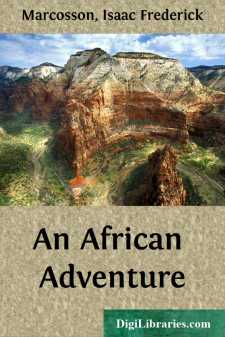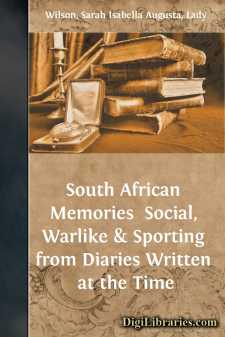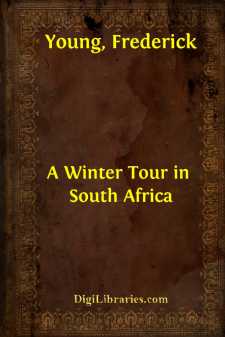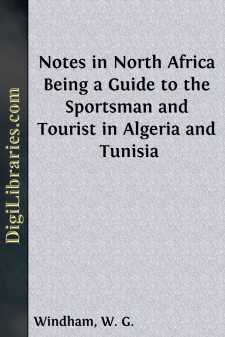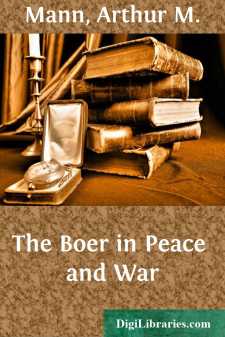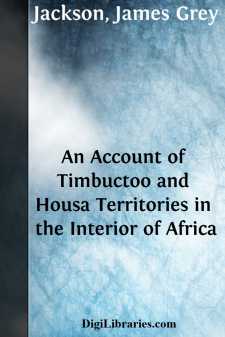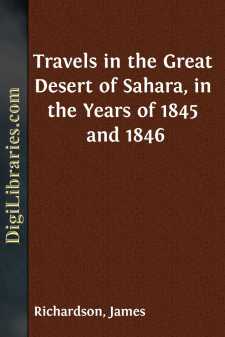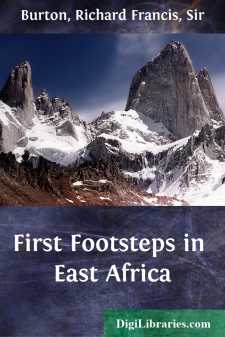Travel
- Africa
- Alaska 3
- Asia 46
- Australia & Oceania 26
- Canada 31
- Caribbean & West Indies 5
- Central America 1
- Europe 151
- General 39
- Maps & Road Atlases 1
- Mexico 10
- Middle East 18
- Polar Regions 7
- Reference 11
- Restaurants 1
- Russia 6
- South America 16
- United States 71
Africa Books
Sort by:
Turn the searchlight on the political and economic chaos that has followed the Great War and you find a surprising lack of real leadership. Out of the mists that enshroud the world welter only three commanding personalities emerge. In England Lloyd George survives amid the storm of party clash and Irish discord. Down in Greece Venizelos, despite defeat, remains an impressive figure of high ideals and...
more...
CHAPTER I FIRST VOYAGE TO SOUTH AFRICA—CAPE TOWN. "Oh that mine adversary had written a book!"—JOB xxxi. 35. The above words, written by one of the greatest philosophers of olden time, have often impressed me, and I have frequently quoted them when asked why I did not write an account of the interesting travels and adventures I have had in my life. It has therefore required a great deal of...
more...
by:
Frederick Young
INTRODUCTION. The growth of the great Colonies of the British Empire is so phenomenal, and their development is so rapid, and remarkable, that if we are to possess a correct knowledge of their actual state, and condition, from year to year, their current history requires to be constantly re-written. The writer of a decade since, is, to-day, almost obsolete. He has only produced a current record of...
more...
by:
W. G. Windham
THE VOYAGE OUT. Paris in 1860.––Notre Dame.––Our Hotel.––Nero and the Groom.––The Steamer for Algeria.––Gallic Peculiarities.––Life on Board. In medias res. I will not stop to describe my journey to Paris, viâ Folkestone, nor to chronicle the glasses of pale ale––valedictory libations to perfide Albion, quaffed at the Pavilion––nor to portray the sea-sickness of...
more...
by:
Arthur M. Mann
THE BOER IN PEACE AND WAR CHAPTER I A Boer may know you, but it will take you some time to know him, and when a certain stage in your acquaintance is reached, you may begin to wonder whether his real nature is penetrable at all. His ways are not the ways of other people: he is suspicious, distant, and he does not care to show his hand—unless, of course, there is some pecuniary advantage to be gained....
more...
CHAPTER XII. THE SÁ LEONITE AT HOME AND ABROAD. In treating this part of the subject I shall do my best to avoid bitterness and harsh judging as far as the duty of a traveller—that of telling the whole truth—permits me. It is better for both writer and reader to praise than to dispraise. Most Englishmen know negroes of pure blood as well as 'coloured persons' who, at Oxford and...
more...
INTRODUCTION. The person who communicated the following intelligence respecting Timbuctoo and Housa, is a Muselman, and a native of Tetuan, whose father and mother are personally known to Mr. Lucas, the British Consul. His name is Asseed El Hage Abd Salam Shabeeny. His account of himself is, that at the age of fourteen years he accompanied his father to Timbuctoo, from which town, after a residence of...
more...
by:
James Richardson
INTRODUCTION. The sentiment of Antiquity—that "The life of no man is pleasing to the gods which is not useful to his fellows,"—has been my guiding principle of action during the last twelve years of my life. To live for my own simple and sole gratification, to have no other object in view but my own personal profit and renown, would be to me an intolerable existence. To be useful, or to...
more...
PREFACE. Averse to writing, as well as to reading, diffuse Prolegomena, the author finds himself compelled to relate, at some length, the circumstances which led to the subject of these pages. In May 1849, the late Vice-Admiral Sir Charles Malcolm, formerly Superintendent of the Indian Navy, in conjunction with Mr. William John Hamilton, then President of the Royal Geographical Society of Great...
more...


